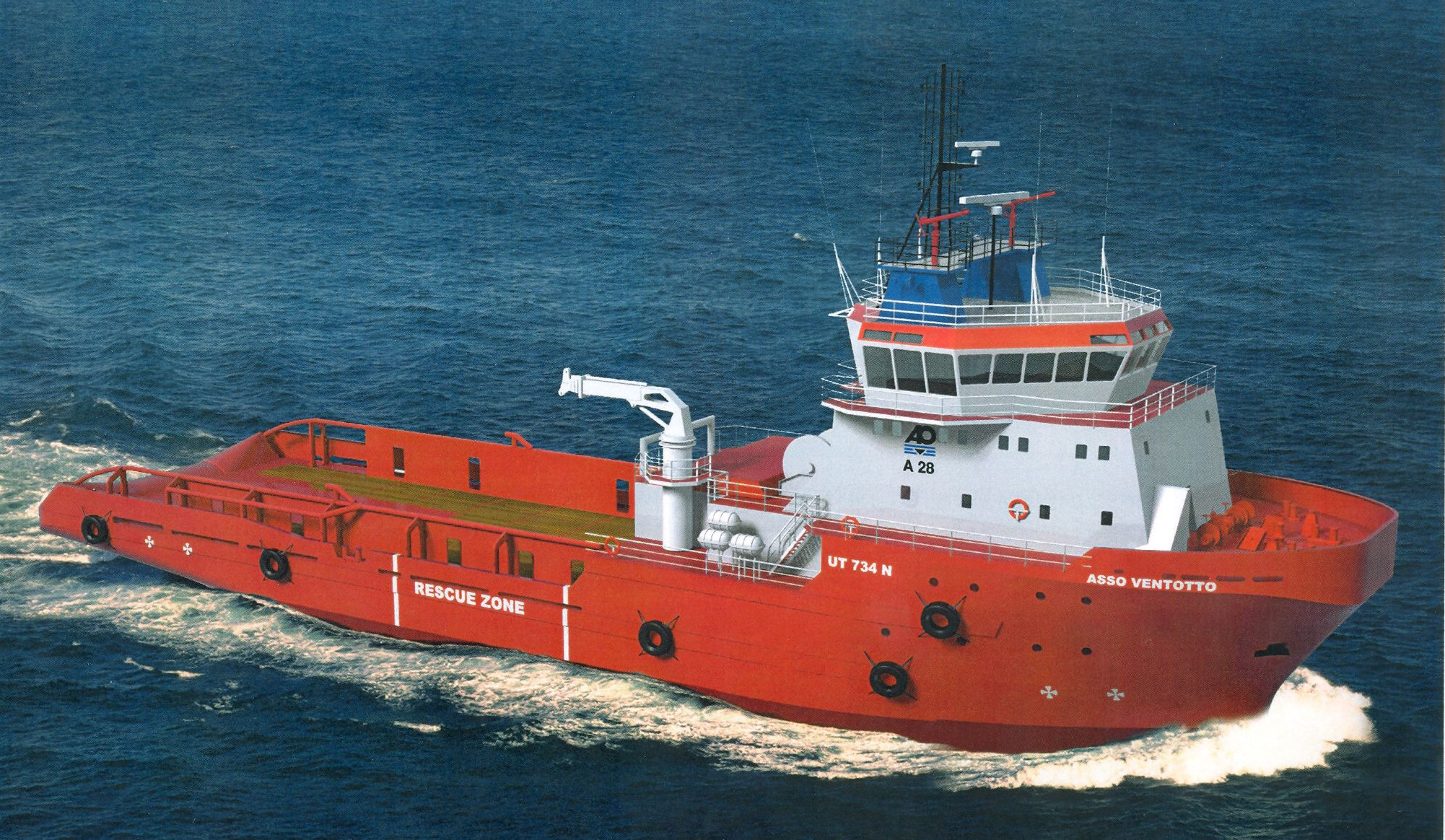The disembarkation of rescued refugees in Libya is punishable under German law, including for merchant ships. This is documented by a Bundestag assessment. However, the Foreign Office and the public prosecutors are not interested in pursuing captains and shipowners
The central Mediterranean is probably one of the best monitored sea areas in the world. The border agency Frontex runs the border police operation “Themis” there, the External Action Service is responsible for the military operation “EUNAVFOR MED”. In addition to large and small aircraft and ships, submarines, drones and satellite surveillance are used. In addition, NATO is also stationed in the Mediterranean with its “Sea Guardian” mission an its “Standing NATO Maritime Group”.
If boats are found in distress during these governmental missions, they have to be rescued immediately. Of course, this also applies to refugees in mostly unseaworthy inflatable boats. This is regulated by international maritime law, for example in the International Convention for the Safety of Life at Sea of 1974. The rescued persons must then be taken to a safe haven. However, Libya cannot be considered safe for refugees, the country has no asylum system, and the militias there are known for mistreatment, torture and murder of people seeking protection.
Prohibition of the rejection of persons seeking protection
The ships of EU member states and NATO are therefore not allowed to bring refugees back to Libya. Such “push backs” are prohibited under the European Convention on Human Rights or the Geneva Convention on Refugees. Both treaties emphasize the principle of non-refoulement, which forbids the repatriation of persons to states where they are threatened with serious human rights violations.
The European Commission in Brussels has been equipping and training the so-called coast guard in Libya for years to intercept the boats on the high seas and bring the asylum seekers back to North Africa. The Libyan authorities are allowed to disembark refugees rescued at sea on their own territory without hesitation, and the country has not signed either of the two conventions mentioned above.
Sea rescue organizations criticize this practice as “push backs by proxy,” i.e., circumventing the ban on repatriation by having the EU commission other actors to do so. A maritime rescue control center, which was to be established in Tripoli with EU funds, is responsible for coordinating the operations.
On several occasions in the past, the Libyan coast guard, among others, has called on ships of the Hamburg-based German shipping company Opielok, which operates a total of eight ships to supply oil platforms, to rescue refugees in distress. The captains of the “Panther” or “Jaguar” were instructed to wait until the Libyan coast guard took over the persons or brought them to Libya themselves. The captains of the German-flagged ships had “necessarily” followed these instructions, said the owner of the company, Christopher Opielok, in an interview with DIE ZEIT last year.
International law also applies to merchant ships
Opielok’s view is based on the assumption that the Human Rights Convention and the Geneva Convention on Refugees apply only to state ships, but not to private merchant ships, i.e. rescued persons could be brought to Libya without fear of legal prosecution.
This interpretation is wrong, however, as an assessment by the Scientific Services in the German Bundestag clearly confirms. The instructions of a Libyan authority must not be followed “if this inevitably involves the return of the rescued to Libya”. This requirement, which originates from international law, must be taken into account by national laws, as is the case in Germany. German criminal law prohibits the “abandonment” of those seeking protection according to § 221 StGB.
When asked whether it has itself observed such a case and initiated criminal investigations, the German Foreign Office responded with conspicuously empty words, writing that it is “strongly committed to compliance with applicable international law” when dealing with “relevant actors”. However, this was not what was asked, but rather the criminal liability according to German law.
First trial in Italy
The German government will not be able to restrain itself for a long time on this issue, because the violations are now also being prosecuted in other countries. The public prosecutor’s office in Naples wants to put the captain and the operator of the Italian flagged merchant ship “Asso Ventotto”, which brought more than 100 rescued persons to Tripoli in July 2018 and handed them over to the Libyan coast guard, on trial.
Similar excitement was recently caused by the German “MS Anne”, but sailing under the Portuguese flag, whose crew had also disembarked around 100 refugees to Libya at the end of May – in this case at the behest of the Maritime Rescue Coordination Centre in Malta. The Portuguese MEP Isabel Santos is now questioning the EU Commission on this matter, and parliamentarians and non-governmental organizations in the country are putting the case of the German ship on the political agenda.
No German precedent yet
The owners of German merchant ships join together in the Association of German Shipowners. Since 2015, the organization has been correctly pointing out that the private sector cannot be held responsible for the European policy of sealing off the Mediterranean and has been calling for government efforts for sea rescue. Nevertheless, German shipowners and captains must comply not only with international law, but also with German criminal law.
It is not known whether German responsible persons have ever been charged or even sentenced for a violation of § 221 StGB, here a precedent is probably needed, as in Italy. However, even local public prosecutors violate the law if they do not start investigations against German shipowners and captains when they have initial suspicions of an “abandonment”. German judicial authorities thus ignore international law and the related criminal law norms of the StGB in order to prevent “Fortress Europe” from cracking.
Image: “Asso Ventotto (Augusta Offshore).





Leave a Reply